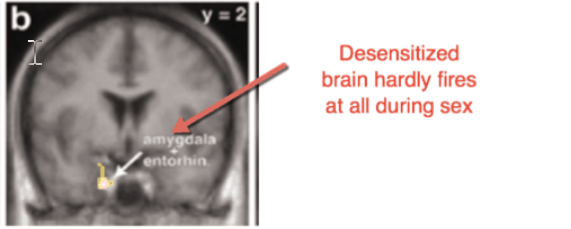
[cmamad id=”12271″ align=”center” tabid=”display-desktop” mobid=”display-desktop” stg=””]
Surprised? Well, this is not a joke or a gimmick – here’s how these seemingly preposterous foods start a chain reaction that ends diabetes…
—-Important Message—-
There IS a magic formula to fixing EVERY performance problem
The reason it works is it REWIRES the connection between your penis and your brain.
You go from this (these are ACTUAL brain scans…the yellow areas are the pleasure centers firing)

To this:

Rewiring the brain-penile connection trumps everything. It beats all other solutions, hands down.
And it works ALL the time…
…because it combines extreme pleasure WITH more sensation and feeling.
This simple change in focus that I discovered, creates such extreme pleasure that the pleasure-seeking brain rewires VERY quickly and ALWAYS.
[cmamad id=”12273″ align=”center” tabid=”display-desktop” mobid=”display-desktop” stg=””]
———-
Yes, potatoes, rice, and sugar can fix diabetes.
According to conventional wisdom, losing weight is the magic key to banishing diabetes or prediabetes.
But this might be completely wrong!
It has become apparent that chronically high cortisol levels contribute to the development of diabetes.
Cortisol is a stress hormone. Its role in the body is actually to put a damper on inflammation.
That’s a good thing, right? But think of cortisol as the fire department.
When you see the firefighters in action, you know there is a fire. They are putting the fire out – they didn’t cause the fire.
But when you hear the fire trucks and see the firefighters in action, you know there is a fire happening.
That’s cortisol.
High cortisol levels are a symptom of chronic inflammation. Sometimes they are the result of ketogenic diets, other extreme diets, fasting, or missing meals.
In a normal man, cortisol levels rise before lunch, before evening, late at night, and early in the morning before breakfast.
In a diabetic man, cortisol levels may be high almost all the time.
All diabetics are insulin-resistant. If you can become sensitive to insulin again, you may be able to become non-diabetic.
In this study, the researchers wanted to see if suppressing cortisol could help reestablish the body’s ability to respond to insulin.

Mifepristone was used in this study. That’s a chemical that decreases the body’s production of a variety of steroids, especially cortisol.
First, they fed mice a high-fat diet to make them obese.
The bodies of obese mice on a high-fat diet generate a lot of cortisol.
(Remember, a high-fat diet is inflammatory. And inflammation brings on cortisol.)
Then they tried to suppress the cortisol in some of these mice by giving them the cortisol-blocker mifepristone.
The mice with cortisol blocked exhibited a marked improvement in insulin sensitivity, less liver injury, and smaller fat cell size.
Those are pretty noteworthy results.
If you can lower cortisol levels, even on a high-fat diet, you may be able to improve insulin resistance.
And help your liver and other cells recover from the damage that’s been done.
And you may lose fat as well.
One of the most interesting discoveries was that lowering cortisol levels also raised adiponectin levels.
Why is raising adiponectin levels important?
When you raise adiponectin levels, you are more likely to lose fat. Check this out:

Adiponectin levels seem to be reduced prior to the development of Type 2 diabetes… and administration of adiponectin has been accompanied by lower plasma glucose levels as well as increased insulin sensitivity.
How about that?
How can you use this information right now to lower your cortisol levels and help prevent diabetes – or even reverse diabetic symptoms?
There are many things that block cortisol.
The most obvious is sugar. Yes, sugar. Sugar in ripe fruit – or good quality orange juice – lowers cortisol almost immediately.
Starch can also lower cortisol. The safest starches are white potatoes and white rice. Not what you thought, right?
Aspirin powerfully lowers cortisol levels. Maybe this is one of the reasons that aspirin helps combat diabetes in many men.
This important study shows that diabetics have to get their cortisol under control.
It also shows that, by focusing on lowering their cortisol levels, they may become thinner and more sensitive to insulin.
———-
Drink sugary sodas and fix diabetes? Huh?
It’s true, diabetic men are often overweight.
And it’s true, diabetic men have high blood sugar.
But you already know that being overweight does not cause diabetes.
Does this also mean you can gobble pizza, guzzle Cokes, and reverse your diabetes in weeks?

No more finger-sticking, no more horrible chemicals to take, no more dragging your carcass to the doctor?
Imagine how free you are feeling… you are a new man, horny and desiring all there is to life, all that you missed when you had diabetes.
Full release! The world is your oyster now, and you can explore and travel and have the bedroom adventures you always dreamed of.
Here’s the full story that will shock you about sugar’s role in FIXING diabetes


Leave a Reply